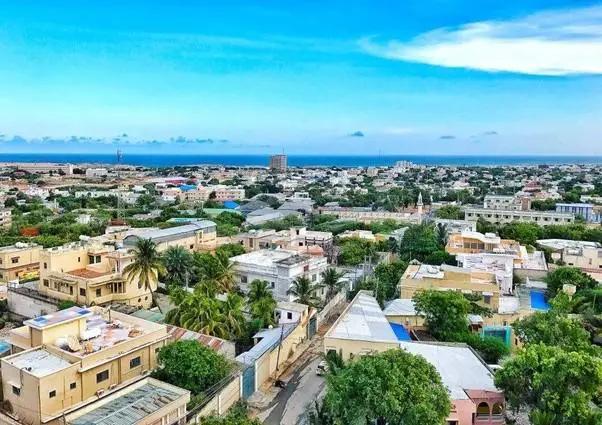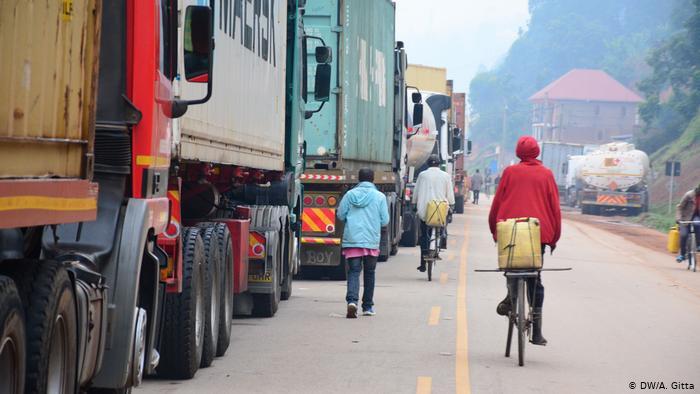- TLcom Capital Raises $154 million in Funding to Boost Its African Growth
- Africa’s $824Bn debt, resource-backed opaque loans slowing growth — AfDB
- LB Investment brings $1.2 trillion portfolio display to AIM Congress spotlight
- AmCham Summit kicks off, setting course for robust future of US-East Africa trade ties
- Why the UN is raising the red flag on the UK-Rwanda asylum treaty
- Portugal’s Galp Energia projects 10 billion barrels in Namibia’s new oil find
- Wärtsilä Energy offers tips on how Africa can navigate energy transition and grid reliability
- Powering Africa: Africa’s Path to Universal Electricity Access
Author: Caroline Muriuki
The launch of the African Continental Free Trade Agreement (AfCFTA) has been pushed from its initial date of July 1 to January next year due to COVID-19 pandemic.
AfCFTA’s Secretary-General Wamkele Mene said that the market is not conducive for the launch considering more than 42 countries out of 55 countries in Africa’s continent are under lockdown and the containment measures are complicating intra-trade.
Speaking to private sector players during a webinar organized by Africa CEO’s forum, Mr Mene said the decision to push forward the launch was made after wide consultation.
“Suspension of the implementation of AfCFTA from July 1 was not my decision but that of African Union Heads of States. I advised the assembly on the reality, facts, science and data on the ground on the situation of Covid-19. The decision of the new date, which also depends on how quick the pandemic is contained, was widely …
The World Bank approved $48 million loan to Morocco to help the country in dealing with the effects of the COVID-19 pandemic as it relaxes restrictions in a bid to reopen its economy.
The loan is part of World Bank’s ongoing programme approved in 2015 for Results project which aims at supporting primary health care services.
The international financial institution said that through project restructuring, a total of $13.01 million is in undisbursed funds under the programme. The bank further said that from the WBG Fast Track Covid-19 Facility, an additional of $35 million will support Morocco’s COVID-19 health sector response by strengthening detection, prevention, case management and surveillance.
According to World Bank Maghreb country director, Jesko Hentschel, Morroco’s government had already taken significant measures to contain the outbreak of the pandemic and lessen the impact on vulnerable households and sectors.
Hentschel also said that the country …
The COMESA region economy is expected to grow at 0.6 per cent this year from 5.2 per cent in 2019 and 6.0 in 2018 according to a report by COMESA Monetary Institute (CMI)
The slight decrease in 2019 was caused by low commodity prices while the expected slump this year will be caused by the devastating impact of the pandemic resulting in toa deeper economic contraction for the COMESA region.
According to the report, the expected contraction of the regional economy will be driven by the decline in global demand and regional spillovers, the impact of containment measures, the impact of multiple shocks and the external financial constraint.
Economic activities have been disrupted by COVID -19 mitigation measures including quarantines, lockdowns, travel restrictions, border closures among other measures which have also led to mass unemployment and loss of livelihoods, especially in the informal sector the report said.
“Decline in global …
Early this year, the United Kingdom Government and the European Union helped Somalia in settling arrears with the African Development Bank which paved way for the lifting of a 30-year-old sanction imposed by the bank.
To mark the reunion, the Bank Vice President for Regional Development, Integration and Business Delivery, Khaled Sherif and Somali Finance Minister Abdirahman Beileh signed a $122.55 million grant.
With assistance from the Bank and other development partners, the shift to a new Somalia can speed its national development agenda of consolidating peace, fighting poverty and ensuring growth.
“We stuck with our reforms, we were persistent, and it has paid off,” Minister Beileh said.
IMF Staff Monitored Programs (SMPs) driven reforms restored the confidence of the bank and led the United Kingdom and the European Union to provide funding for clearing Somalia’s loan arrears to the Bank.
“I am absolutely delighted that the African Development Bank …
Uganda has set aside money in its $43 trillion budget for the 2020/2021 financial year to help revive small and medium businesses that have been affected by the COVID-19 pandemic.
Uganda’s government allocated $88.4 billion as credit through Saccos and microfinance to help small and medium businesses.
Uganda’s minister of finance Matia Kasaija, said since the sector accounts for 85 per cent of private employment, the credit was significant.
Uganda Development Bank was also given $98 billion to enable businesses mostly large scale private firms and manufacturers to borrow at low-interest rates.
The government Uganda also said they would urgently pay arrears it owed the private sector through returns from Value Added Tax (VAT).
“To address emergencies on liquidity and other financial constraints suffered by government suppliers, the government will pay arrears of $633.4 billion commencing July 2020. Priority will be small and medium enterprises,” said Mr Kasaija.
Also Read:
…Uganda and Rwanda recorded a reduced trade flows in April and May 2020 according to a report from the COMESA Statistics on ‘COVID 19 Impact on Trade’.
The COMESA Statistics on ‘COVID 19 Impact on Trade’, the report was prepared in the first two months in which COVID-19 pandemic spread to the region.
Imports to Uganda declined by 30 per cent in April compared to March. Malaba border recorder a decline in import of 35 per cent, Busia a decline of 28 per cent and Entebbe a decline of 24 per cent.
Uganda’s May imports were seen to decline by 20 per cent.
In Rwanda, Imports declined by 32 per cent in April compared to March. Rusumo border recorded a decline of 35 per cent while the airport border recorded a decline of 16 per cent.
In the Month of April Exports to Rwanda also decline by 8 per cent …
The government of Uganda has increased import duty on agricultural products to 60 per cent and other products to 35 per cent in a bid to raise revenue.
The total import bill in Uganda is $7 billion per year.
During the presentation of Uganda’s budget for the financial year 2020/21 the finance minister Matia Kasaija said: “In order to promote import substitution and the development of local industries, we have increased import duties on goods that are produced or can be produced locally.”
Mr kasaija said that the import duty on agricultural products has been increased to 60 per cent and other products to 35 per cent.
The finance minister also said that modest tax rates adjustments that have been made include removing ambiguity in the legislation, the excise duty rate on fuel, support compliance and emoving any loopholes that may lead to revenue loss.
He said that VAT will …
Egypt will resume flights from July 1st, the civil aviation minister said yesterday in a joint press conference with the ministers of tourism and information.
The decision is “an important step for the aviation sector to be accompanied with the sanitization operations for all the country’s airports and aeroplanes,” said Mohamed Manar, Civil Aviation Minister.
The minister also added that air traffic will operate regularly in the country then gradually with other states.
As a precautionary measure to curb the spread of the COVID-19, Egypt had suspended international flights since March 19 as well as shutting down shut down restaurants, hotels and cafes.
Mr Manar noted that the suspension period was used to enhance the infrastructure of airports national wide.
“All planes have been comprehensively sterilized and only dry meals and canned beverages will be offered,” Manar said.
Mr Manar also added that the distribution of any publications …
The African Development Bank has approved COVID-19 emergency funds to its member countries which have reached the continent’s five geographic regions.
The COVID-19 pandemic is seen to cause a drop in Africa’s gross domestic profits by between $22.1 billion and $88. Billion.
By June 12, the African Development emergency package had reached Africa’s five geographical regions.
Before the pandemic, West Africa was home to at least four of Africa’s fastest-growing economies and has felt the impact of the pandemic as borders remain cloAfrican Development emergency packageAfrican Development emergency packagesed economic distress deepens.
To bolster national health systems in response to the Pandemic, Mali, Niger and Gambia will benefit from an ECOWAS $22 million support package.
From the Emergency package, Nigeria got €288.5 million, Senegal €88 million, Côte d’Ivoire €75 million and Cabo Verde €30 million.
Funds to this region will seek to address shortages in ventilators, personal protective equipment (PPE) …
The aviation industry in Africa is expected to suffer a revenue loss of $8.103 billion this year due to COVID-19, according to a report by the African Airlines Association (AFRAA).
The analysis among the first series of study by AFRAA examining the impact of the COVID-19 pandemic on Africa’s air transport sector.
The African Airlines Association report shows that passenger revenue in the first quarter of this year dropped to $0.403 billion which represents 13.8 per cent year-over-year with more impact seen in Q2 2020 costing $2.740 billion.
Also Read: Air passengers travel confidence key to salvaging African airlines
According to the AFRAA analysis, air transport recovery is expected to start from Q3 2020 with domestic operations taking the lead followed by regional and international flights.
For the month of May, the report shows that the aviation industry recorded a 90.3 per cent year on year passenger traffic reduction.
According …














